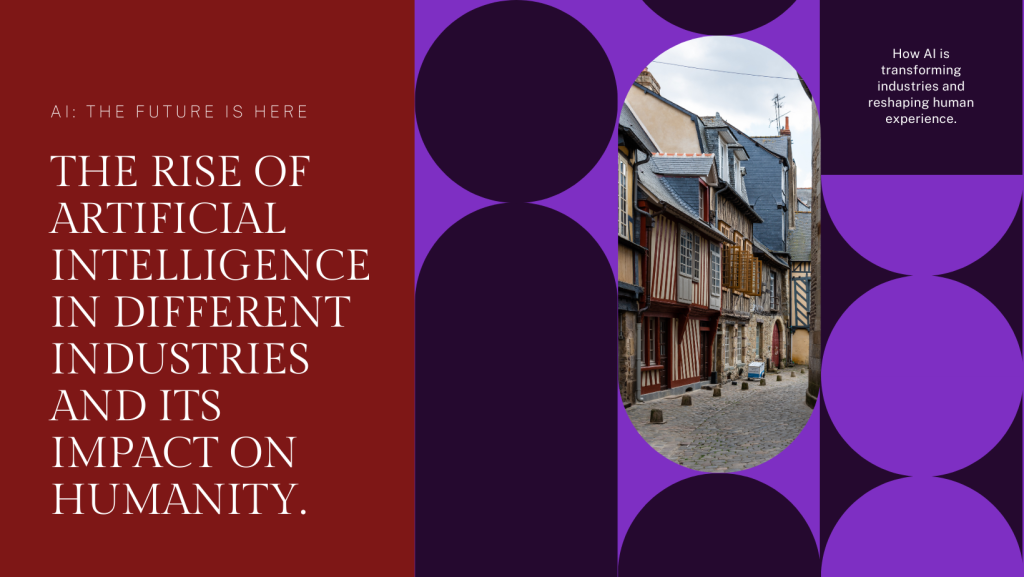Artificial Intelligence (AI) is no longer confined to the realms of science fiction; it has become an integral part of our reality, reshaping industries and transforming the human experience in unprecedented ways.
In various sectors, from healthcare to finance, AI is revolutionizing operations. In healthcare, AI-powered systems analyze vast amounts of medical data to assist in diagnosis and treatment decisions, leading to more accurate and personalized healthcare solutions. Similarly, in finance, AI algorithms sift through massive datasets to detect fraudulent activities and optimize investment strategies, enhancing efficiency and mitigating risks.
Moreover, AI is driving innovation in transportation, with the emergence of autonomous vehicles promising safer and more efficient travel. In manufacturing, AI-driven automation is streamlining production processes, increasing productivity, and reducing costs.
Beyond its impact on industries, AI is reshaping the way we interact with technology and the world around us. Virtual assistants like Siri and Alexa have become ubiquitous, simplifying daily tasks and providing personalized assistance. AI-powered recommendation systems on streaming platforms and e-commerce websites offer tailored content and products, enriching user experiences.
However, alongside these advancements come ethical considerations and societal challenges, such as job displacement and privacy concerns. As AI continues to evolve, it is crucial to navigate these complexities responsibly and ensure that its benefits are equitably distributed.
In conclusion, the rise of artificial intelligence is fundamentally transforming industries and reshaping the human experience. Embracing its potential while addressing its challenges will be key to harnessing AI’s full potential for the betterment of society.


